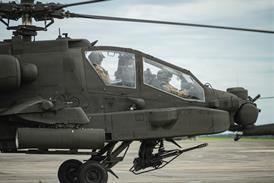FlightGlobal is the global aviation community’s primary source of news, data, insight, knowledge and expertise. We provide news, data, analytics and advisory services to connect the aviation community globally and help organisations shape their business strategies, identify new opportunities and make better decisions faster.
Airbus explores high-voltage battery potential for non-propulsive roles

Airbus is aiming to explore high-voltage battery behaviour during test flights of an electric light aircraft this year, with the aim of applying the technology to ‘micro-hybridisation’ – the use of battery power in a supportive, rather than propulsive, role for larger aircraft types.
Keep reading this article by becoming a FlightGlobal member now
PLEASE REGISTER FOR FREE OR SIGN IN TO CONTINUE READING

You have reached your limit of free articles for this period. Register for a FREE account to read this article and benefit from:
- Increased access to online news and in-depth articles from:
- FlightGlobal Premium covering the global aviation industry
- Airline Business providing insight for business leaders
- Weekly newsletters on topics across the industry




















